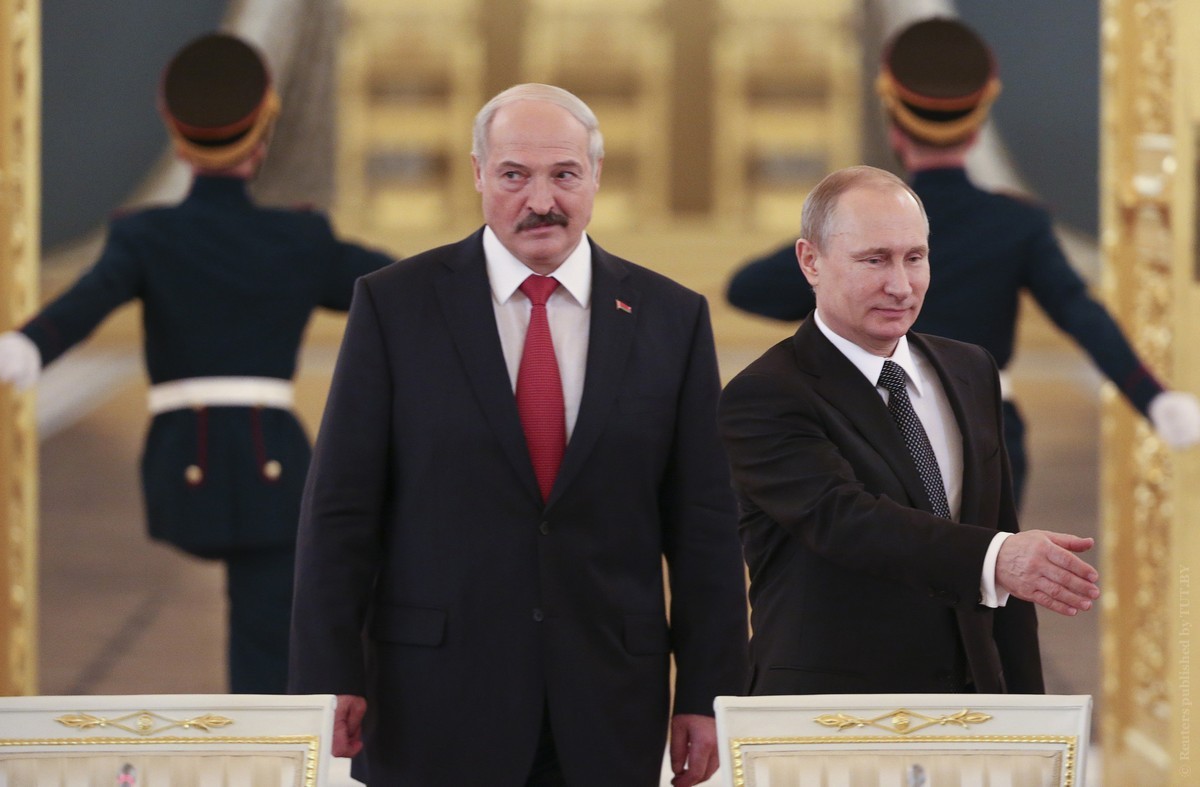Russo-Belarusian alliance terms deteriorate
 The situation has not changed
The situation has not changed

Minsk and the Kremlin abstain from escalating information tension in bilateral relations. Meanwhile, Moscow has not relaxed pressure on the Belarusian government and put the oil and gas dispute on hold. Despite the fact that the Kremlin has not voiced a clear position, apparently, it has serious claims to Minsk either about integration, or about privatisation.
Last week, Russian Ambassador to Belarus Alexander Surikov said that all controversial oil and gas issues would be resolved in the near future.
The Russian authorities have not issued any public statements about the detention of the pro-Kremlin writers for REGNUM news agency by the Belarusian law enforcement. Perhaps the Kremlin wants to abstain from an escalation with its closest ally before the holiday season. In turn, the Belarusian authorities also did not continue the information confrontation with the Kremlin. That said, the article in the Sovetskaya Belorussia, Presidential administration’s newspaper, about Russian Agricultural Administration head Dankvert was frankly feeble.
Amid neutral information background, the Kremlin continues to exert pressure on Minsk. For instance, the Eurasian Development Bank postponed the transfer of the third tranche worth USD 300 million to Minsk. The EDB insists on the adoption of two presidential decrees: first, to raise unemployment benefits for laid off from reorganised enterprises; second, to transfer insolvent companies to trust management. These two decrees should give a start to closing insolvent companies.
Russia promised to increase oil supply to Belarus in Q1 2017 to 4.5 million tons, which in fact is a reduction as compared with Q1 2016. Only if Belarus pays out due debt for gas at USD 425 million, Russia will supply 24 tons of oil in 2017, which would still be two tons less than in previous years.
Simultaneously, Russia offered a subsidy: Belarus would be able to export three million tons of oil without processing and keep the oil duty in her budget (the duty on oil is double the duty on petrochemicals). However, this subsidy is less than the reduction in the gas price for other Gazprom clients (USD 300 million in total) and is inconsistent with the principle of netback parity stated in the agreements.
Overall, even if Belarus fully complies with Moscow’s terms, oil and gas cooperation with Russia will deteriorate in 2017, and if the dispute spins out – relations will deteriorate even more. That said, the delay in repaying due debt for gas will lead to the deterioration of the oil and gas cooperation terms. In 2016, Russia will undersupply circa 5.5 million tons of oil to Belarus and the Belarusian budget will not earn more than USD 220 million from export duties on petrochemicals.
Publicly, the Kremlin has not formulated clear requirements for Belarus to resume oil supplies and oil benefits in full. Different public officials voiced various requirements for resolving the oil and gas dispute and improving access to the Russian market for Belarusian products. Inter alia, they proposed: to introduce a single visa policy, establish a single agricultural control service of the Union State, deploy a new Russian military base in Belarus, reorient Belarusian transit via Russian North-Western ports, and resume five integration projects on privatization of Belarusian state assets (including MZKT).
Minsk is under strong pressure of the Kremlin, which refuses to accept arguments previously used in bilateral relations.
Subscribe to our newsletter




Situation in Belarus
Constitutional referendum: main consequences


 Video
Video
How to count the political prisoners: are the new criteria needed?


 Video
Video
Paternalism In Decline, Belarusian Euroscepticism, And The Influence Of Russia


 Video
Video











